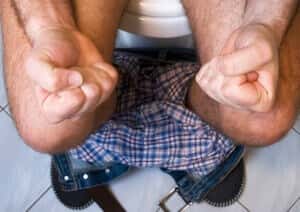
Good digestive function is widely recognized as a cornerstone of good health. As a consequence, some people who have trouble with constipation may be tempted to use laxatives. If they do so repeatedly, they may find themselves in a vicious cycle where they become increasingly dependent on their chosen medication. Is there such a thing as laxative addiction?
How Can You Turn Laxative Addiction Around?
Q. No one knows I have this problem. I have been using the laxative bisacodyl every day for twenty years and have steadily increased the dosage.
I’ve stopped taking it for a few days at a time. Not surprisingly, nothing moves. Are there any studies on this? Might I have done permanent damage to myself? Is it better to cut back slowly or stop altogether and just see what happens? I know it’s not healthy for waste to back up in my body, so I’m worried about stopping AND I’m worried about continuing.
What You Can Do to Break a Laxative Habit:
A. You clearly have developed a laxative habit. Bisacodyl is considered a “stimulant” laxative, which means it triggers intestinal contractions. This can lead to loss of crucial minerals such as magnesium and potassium. Cramping and diarrhea are other possible side effects, along with a “lazy” colon that will not function properly without laxatives.
A gradual phase-off under medical supervision may allow your body to reestablish a more natural rhythm, and allow you to overcome your “laxative addiction.” The doctor may recommend supplemental fiber such as psyllium (Metamucil, for example). Magnesium supplements or flaxseed tea can also be useful in this situation.
In certain cases, physicians have prescribed diuretics in the short term (three months) to help patients break long-term laxative addiction (CEN Case Reports, Nov. 2014). Special exercises to strengthen the muscles of the pelvic floor can greatly reduce the need for laxatives and the temptation for laxative abuse (World Journal of Gastroenterology, July 21, 2014).
We are sending you our Guides to Constipation and Digestive Disorders for information on non-drug approaches such as dynamite pumpkin muffins and “Special Constipation Remedy” with bran, applesauce and prune juice.
Learn More:
You may also wish to listen to our interview with Dr. Robynne Chutkan. It is Show 1115: How You Can Conquer Constipation. Learn how to add real fiber to your diet, bolster your intestinal microbes and get your digestive tract moving as it should.

